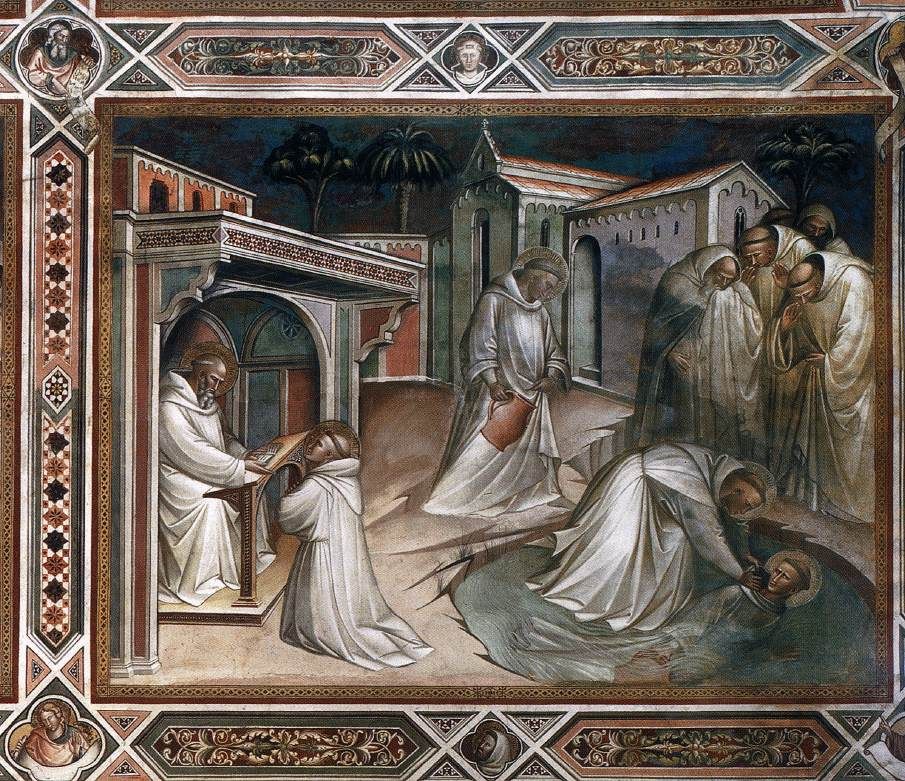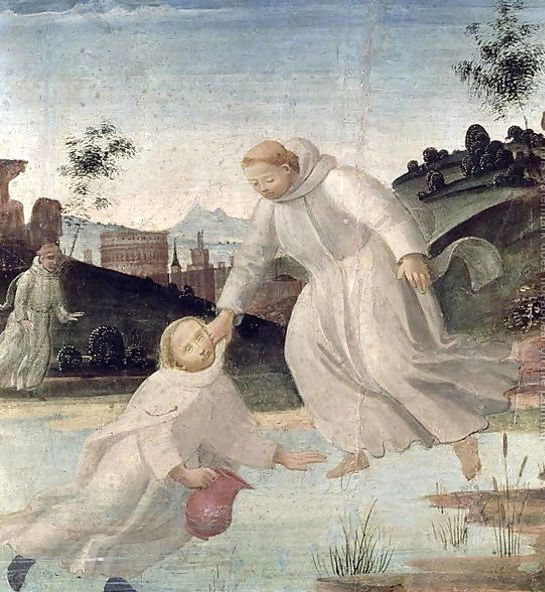Message of Abbot Paul - Monday - 15th January 2024
Abbot Paul • January 14, 2024


In the Benedictine tradition, 15th January is associated with Saints Maurus and Placid, young disciples of Saint Benedict. As is clear from the Rule of Saint Benedict, it was already the custom for monasteries to receive the sons of rich and poor alike and educate them in the hope that they would become monks. A famous example is Saint Bede the Venerable, who entered the monastery at Jarrow when he was just 7 years’ old and received his entire education in the monastic community. We cannot underestimate the learning and culture of monks and nuns and the place of monasteries in the cultural and scientific history of the world. Maurus was the elder of the two. The story of Placid being saved from drowning is found in the Dialogues of Saint Gregory the Great. Placid goes to fetch water in the lake, but falls into the water. Saint Benedict, aware of the situation by God’s grace, sends Maurus to rescue the child Placid. Maurus, having received his abbot’s blessing, runs over the surface of the water, grabs Placid by the hair, pulls him out, and then runs back over the water to dry land, carrying the boy in his arms. Saint Benedict attributes the miracle to Maurus’ obedience whilst Maurus attributes it to the abbot’s holiness. It is Placid who settles the debate: “When you pulled me out of the water, he says, I saw over my head Father Abbot’s hood, and I saw that it was he who pulled me from the water.” It’s an episode in the Dialogues that illustrates the value of obedience.
Our Gospel passage comes from Mark, (Mk 2: 18-22), and deals with the behaviour of Jesus’ disciples compared with those of John the Baptist and the Pharisees. It focusses on fasting, but Jesus takes the opportunity to explain an important truth about himself. “One day when John’s disciples and the Pharisees were fasting, some people came to Jesus and said to him, ‘Why is it that John’s disciples and the disciples of the Pharisees fast, but your disciples do not?’” The answer that Jesus gives is not what they’re expecting. Jesus is always full of surprises. If his disciples are not fasting, then it’s because Jesus himself isn’t fasting, but that’s another story. However, Jesus replies, “Surely the bridegroom’s attendants would never think of fasting while the bridegroom is still with them? As long as they have the bridegroom with them, they could not think of fasting. But the time will come for the bridegroom to be taken away from them, and then, on that day, they will fast.” Jesus uses metaphors as well as parables. He refers to himself as the bridegroom, so his presence with his disciples must be like a wedding feast for them, a cause of great rejoicing. The real fast was the absence of Jesus before his coming among them. They will fast again when he is taken from them, but with the resurrection and the coming of the Holy Spirit, the fast will end definitively. The kingdom of heaven is a banquet, not a fast!
Jesus continues, “No one sews a piece of unshrunken cloth on an old cloak; if he does, the patch pulls away from it, the new from the old, and the tear gets worse. And nobody puts new wine into old wineskins; if he does, the wine will burst the skins, and the wine is lost and the skins too. No! New wine, fresh skins!” Jesus uses another two metaphors, patches on cloaks and wineskins. He doesn’t want his disciples to follow the religious observances of the Pharisees. The freedom of a grace-filled life cannot fit into the legalistic straightjacket the Pharisees impose on their disciples. The words of Jesus invite his hearers to new life in him as Messiah and Saviour. We must read what Jesus says in the context of the unity of the Church in Christ. We remember his words, “I am the Vine, you are the branches.” (Jn 15: 5) We are the living stones that together with Christ our head make up his Mystical Body. “Apart from me,” he says, “you can do nothing.” (Jn 15: 5) In that case, with him we can do all things, for “nothing is impossible to God.” (Lk 1: 37) Lord, help us to put our trust in you and to desire nothing but to live united in you. Amen.









